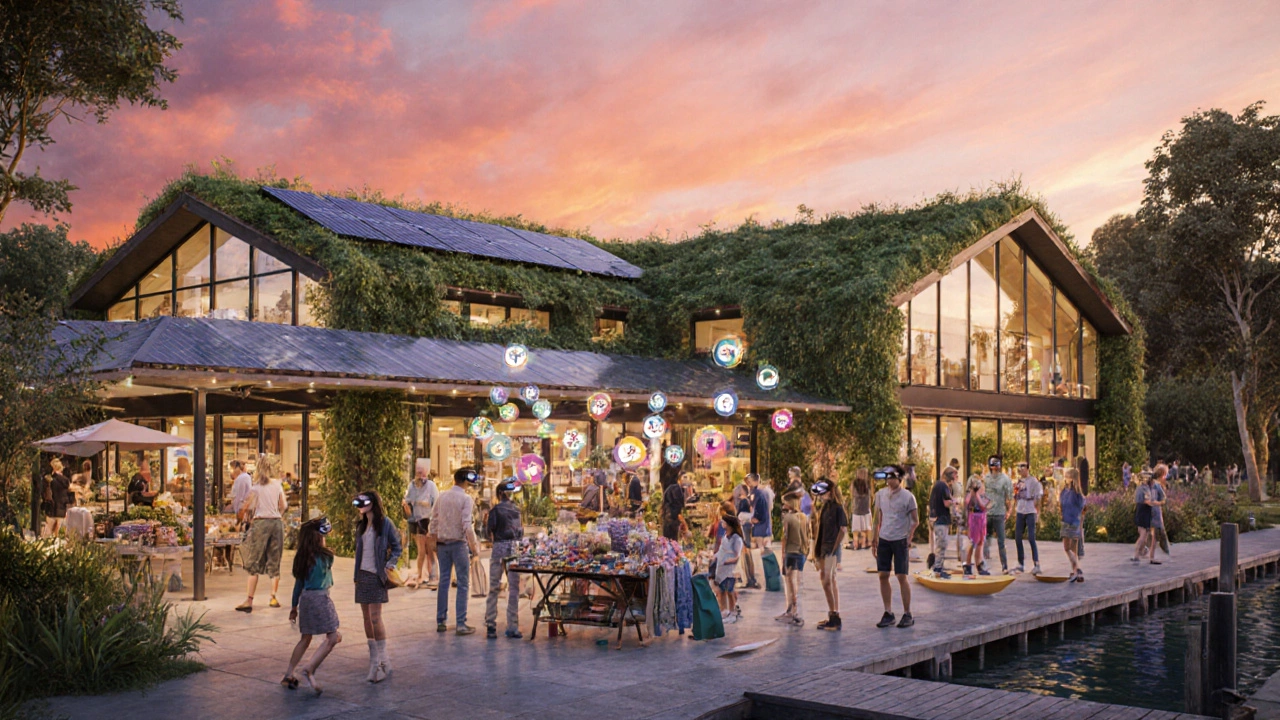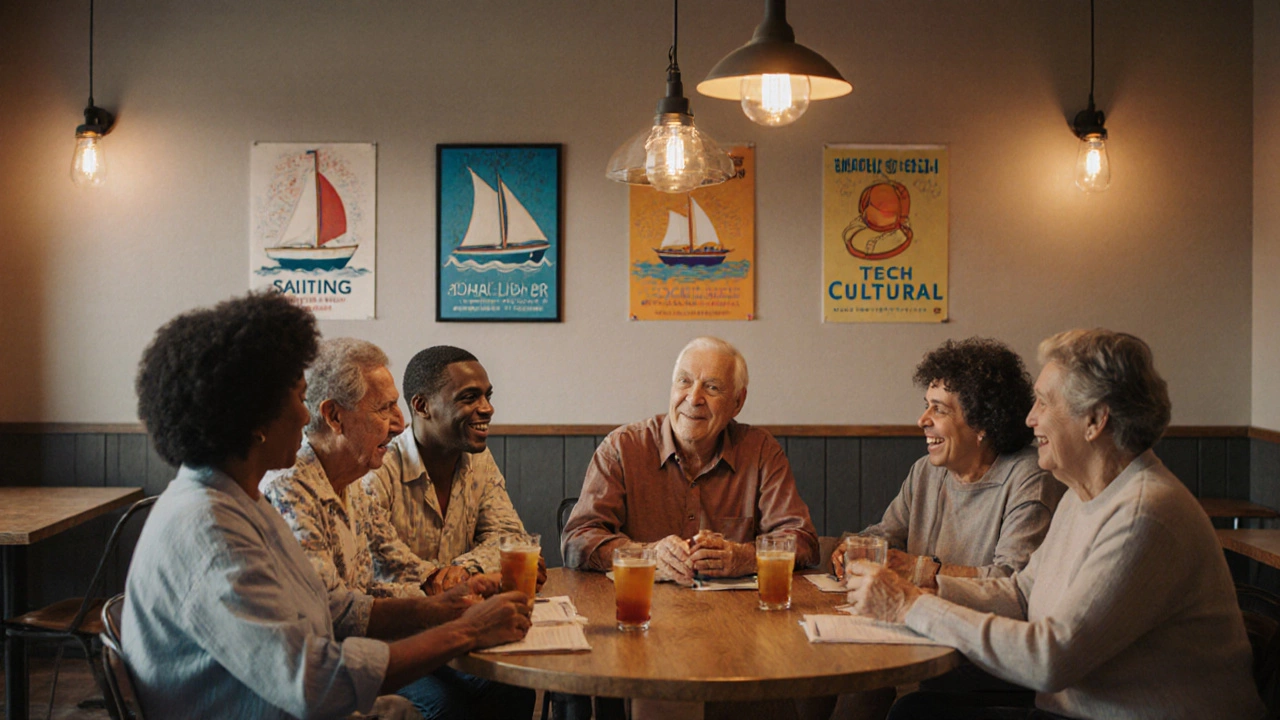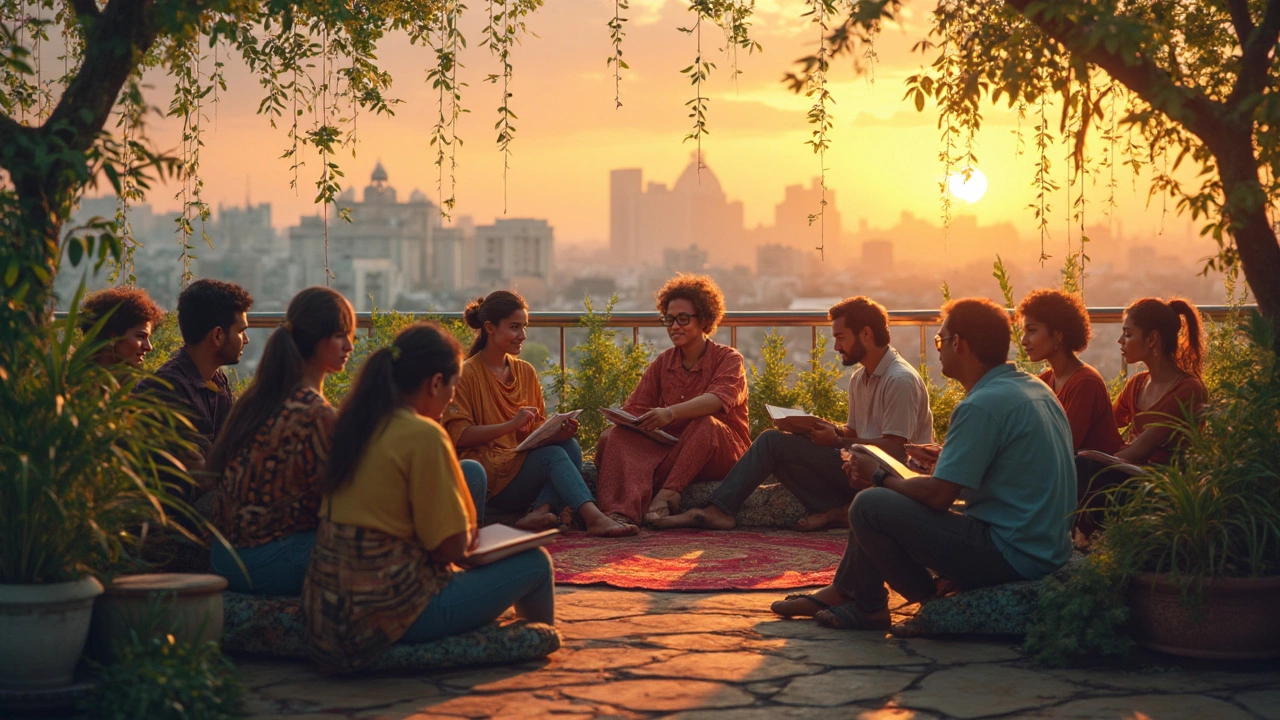Explore the current state of social clubs in 2025, learn how they evolved, find ways to join or start one, and see why they remain vital community hubs.

- Created by: Lydia Carmichael
- Completed on: 18 Oct 2025
- Categories: Community Support
Social Club Finder 2025
Find social clubs that match your interests and location. Based on current trends and 2025 data, this tool helps you connect with community groups that offer both in-person and online options.
Search Results
When you hear the word "social club," the first image that pops into your head might be a tuxedo‑adorned ballroom, a weekly card game, or a local Rotary gathering. But in 2025, the landscape has shifted. From coffee‑house meetups to app‑driven hobby circles, the question is: are social clubs still around, and if so, how do they fit into today’s busy, digital‑first lives?
What Exactly Is a Social Club?
Social clubs are organized groups of people who come together around a shared interest, hobby, cause, or simply the desire for regular social interaction. They can be formal (chartered organizations with bylaws and dues) or informal (a group of friends meeting at a park). The core purpose remains the same: create a sense of belonging and provide a regular venue for members to connect.
A Quick History: From Gentlemen’s Rooms to Online Meetups
Social clubs first flourished in the 19th‑century UK and US, serving as networking hubs for businessmen, artists, and philanthropists. The post‑World War II boom saw a proliferation of community‑centric clubs-Rotary, Lions, and local hobby societies-often supported by municipal halls.
Fast forward to the 2000s. The rise of the internet introduced platforms like Meetup and Facebook Groups, allowing anyone to start a club with a click. The COVID‑19 pandemic forced many brick‑and‑mortar clubs to move online, accelerating the hybrid model we see today.
Are They Still Going Strong? Current Data and Trends
Recent research from the New Zealand Ministry for Culture and Heritage shows that club membership rose from 23% of adults in 2019 to 27% in 2024, even after the pandemic slump. Wellington alone reported a 12% increase in new community‑group registrations between 2022‑2024, driven largely by hybrid‑event offerings.
Key trends driving the resurgence:
- Hybrid meetings: Clubs now host both in‑person and virtual sessions, widening access.
- Micro‑interest niches: From urban foraging to retro video‑game clubs, people are finding groups that match even the most specific passions.
- Collaboration with local councils: Funding and space support have helped clubs survive rising venue costs.

Traditional vs. Digital Social Clubs: A Side‑by‑Side Look
| Aspect | Traditional Clubs | Digital Clubs |
|---|---|---|
| Meeting format | Physical venues (halls, pubs, community centers) | Video calls, chat rooms, dedicated apps |
| Membership cost | Often includes venue fees, printed materials | Usually free or low‑cost subscription |
| Typical activities | In‑person workshops, socials, charity events | Online webinars, virtual gaming, digital book clubs |
| Tech requirement | Minimal - mainly a meeting space | Internet connection, device, platform account |
| Geographic reach | Local or regional | Global, with optional local meet‑ups |
The table shows that neither model is inherently better; many clubs blend both approaches to stay relevant.
How to Locate a Social Club in 2025
- Check local council event calendars - many municipalities list community groups that need volunteers or members.
- Search on Meetup or Facebook Groups using keywords like "Wellington photography" or "NZ hiking club".
- Visit community notice boards at libraries, cafés, or the local community centre. Posters often advertise monthly meet‑ups.
- Ask at workplaces or schools - many employers sponsor hobby clubs for staff wellbeing.
- Explore niche apps like Clubhouse (the audio‑chat platform) for interest‑specific rooms that turn into real‑world gatherings.
When you find a club, look for clear information on meeting frequency, membership expectations, and whether they support hybrid attendance. A transparent club will have a simple website or a public calendar.
Challenges Facing Modern Social Clubs
Even with the boom, clubs grapple with a few hurdles:
- Retention fatigue: With endless digital events, members may feel overloaded and drop out.
- Funding gaps: Rising venue rents push some traditional clubs to the brink, especially in city centres like Wellington’s CBD.
- Digital divide: Older members sometimes struggle with Zoom or Discord, limiting participation in hybrid formats.
Successful clubs address these by rotating leadership, offering low‑cost virtual options, and partnering with local businesses for sponsorships.

Starting or Reviving a Club: A Practical Checklist
If you’re inspired to launch a new group-or bring an old one back-use this quick checklist:
- Define purpose: Write a one‑sentence mission that captures the core interest.
- Choose a name that’s searchable online and reflects the activity.
- Set meeting logistics: Decide on frequency, duration, and hybrid options.
- Pick a platform: Create a public page on Meetup, a Facebook Group, or a simple Google Site.
- Secure a venue (if in‑person): Approach community centres or cafés for free or discounted space.
- Promote locally: Use flyers, local radio, or council newsletters.
- Establish simple bylaws: Membership fees, code of conduct, and leadership rotation.
- Launch with a hook: Host a fun ice‑breaker or guest speaker to attract the first batch of members.
Keep the first few meetings low‑key; the goal is to build camaraderie, not perfect execution.
Future Outlook: Will Social Clubs Endure?
Looking ahead, the evidence suggests that social clubs will continue to adapt rather than disappear. The blend of physical gatherings with digital platforms creates resilience-clubs can survive venue closures, weather disruptions, or even another pandemic.
In Wellington, the local council’s "Community Hubs" initiative, launched in 2023, earmarks funding for clubs that demonstrate inclusive, hybrid programming. Similar policies are emerging across New Zealand, indicating official support for the club model.
So yes, social clubs are very much still around, but they’re evolving into more flexible, tech‑savvy community anchors.
Frequently Asked Questions
What defines a modern social club?
A modern social club is any organized group that meets regularly-physically, virtually, or both-to share a common interest, with an emphasis on inclusive membership and flexible meeting formats.
How can I find a club that matches my hobby?
Start with platforms like Meetup, Facebook Groups, or local council event listings. Use specific keywords (e.g., "Wellington knitting"), and check community notice boards for flyers.
Are there grants for starting a community club?
Many New Zealand local councils offer small grants for community initiatives, especially those that promote social cohesion. The Wellington City Council’s "Community Hub" fund is a good place to start.
What’s the biggest challenge for clubs today?
Balancing in‑person tradition with digital convenience while keeping membership costs affordable. Clubs that offer hybrid events tend to retain members longer.
Can I run a club entirely online?
Absolutely. Platforms like Discord, Zoom, and Clubhouse support regular meetings, guest speakers, and even virtual activities such as game nights or book discussions.
Explore why people join social clubs, uncover the emotional, skill‑building and community benefits, and learn how to pick the right group for you.
Social clubs bring people together with shared interests, creating a sense of community and friendship. From book clubs to hobby groups, these clubs are as varied as the people who form them. Discovering what brings a club its charm, this article provides insight into the most common types around. Whether looking to join for personal growth or just for fun, there's a wide world of social communities waiting to be explored. Learn about them and how they might fit into your life.

